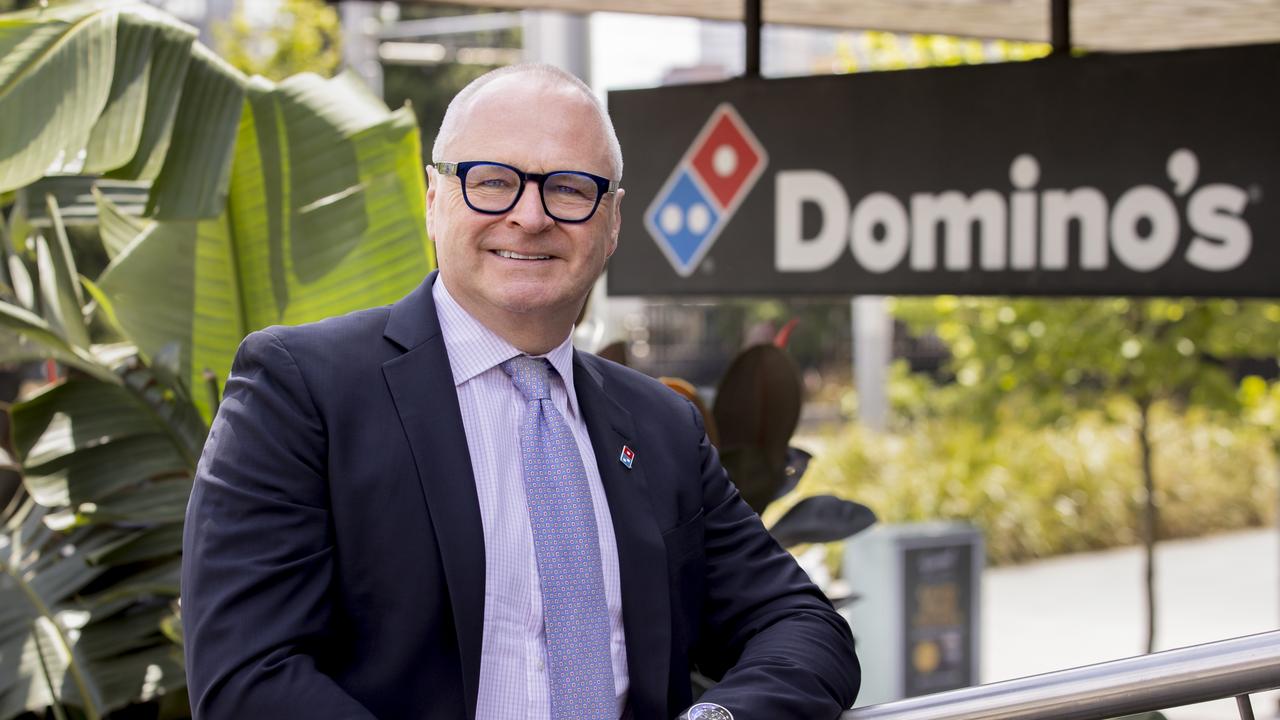
Neither company will quite admit to being a beneficiary of government support, but that is the practical impact of the moves by the government directly and through the Reserve Bank to pump liquidity into the system.
Both companies are highly regarded credits and are clearly smart enough to know in times of crisis it’s the first in the door that gets the best deals.
Dig Howitt at Cochlear knows that too and, being hit by a sometimes government-directed slump in elective surgery, paid JPMorgan and associated advisers $20m to raise $780m on the stockmarket to help bridge the gap.
It came on a day when Virgin put another 8000 people on the streets and Scott Morrison warned that millions more jobs were in peril.
Transurban stressed that the $815m in refinancing debt raised by its Hills Motorway division was raised on the Asian market, but was arranged by NAB. The money will be used to replace two bank facilities and effectively increase the tenor on the debt to 10 and 20 years, respectively.
Qantas boss Alan Joyce has raised new 10-year money at a bargain 2.75 per cent. The big four Australian banks were all in the syndicate of 10, which also included JPMorgan, Citibank, OCBC, Bank of China and BNP
In recent days Joyce has attracted the ire of ACCC chief Rod Sims, among others, for making clear his disdain at the concept of government money supporting one of his rivals, Virgin.
The debt deal is clearly not direct support for Qantas, but shows the airline knows how to make the system work best for its survival.
The US government has offered $US50bn ($83bn) in lines of credit for its airlines, with Delta taking $US10bn.
The RBA and government liquidity was aimed at the small and medium-sized corporate sectors, but few in that part of the world really want to raise debt, if they can avoid it, because they are well aware that when the crisis ends the banks will be asking for their money back.
The big companies are instead using this time to prudently reduce their long-term interest bill and at the margin get hold of the money while they can.
Outside the still strong freight and the West Australian mining sectors, Qantas and Virgin face a government-mandated slump in revenues due to bans on flying domestically and internationally.
In the wake of the global financial crisis, Australian companies raised $98.9bn in funds, which netted the investment banks led by UBS $1.9bn in fees. The lesson then was to get in early. Cochlear has not raised money since it listed in 1995 and the money raised through the issue of 5.7 million new shares at a 17 per cent discount to market at $140 a share will effectively dilute earnings per share by 9.9 per cent. The issue price compares to its near-term peak of $251.55.
The good news is demand in China is running at 60 per cent above pre-virus closure levels.
Buying the Nufarm
Nufarm’s stock price jumped 18.5 per cent on Wednesday to $5 based not on the result just handed down by Greg Hunt, which was a $122m loss on a 6 per cent fall in revenue to $1.5bn, but more for what the future may hold.
For starters, being in the food sector is a plus, especially with no repeat floods in the US, as well as rain in Australia to help this season’s crops, and next Wednesday Hunt will receive $1.2bn from Sumitomo to settle the sale of his Latin American business.
The best news is that, all going to plan, this half year will see the first big sale of omega3 canola to fish farmers to help reduce the one million tonne deficit in fish oil.
The omega 3 trial has the potential to produce the same earnings as the rest of Nufarm does in a good year, with fish farmers the first market, followed by the nutraceutical and pharmaceutical markets.
Aquaculture is the biggest market right now, but in a few years we may be taking Hunt’s omega3 canola tablets instead of fish oil.
Either way, it’s some blue sky after some tough years.
Video in demand
Video conferencing has come into its own amid the coronavirus self-isolation, and Norwegian-based Pexip’s virtual software platform has emerged as a tool of choice because of its security and reliability.
This is in stark contrast to the popular Zoom, which has suffered myriad security breaches, underlining the reality that, for the China-based technology team as with Google and Facebook, the aim of the game is data collection.
Large corporate enterprise systems reportedly get attacked by malevolent cyberbots every three seconds, so security is a big issue.
Pexip is backed in part by John Wylie’s Tanarra Capital, which owns a 9 per cent stake in the $US600m company.
Its Australian clients include Telstra and ANZ.
Wylie invested on the advice of former iVision boss and then Pexip board member Graham Williams in June 2015 and the firm, markets willing, is aiming to list in Norway later this year.
Williams is now chairman of another Norwegian vision technology company, Huddly.
Pexip’s technology is called scalable virtual software, which means rather than the video conference being centred in one location it is a distributed platform. A virtual machine copy in, say, Europe is the base for European callers, a virtual machine copy in Australia is the centre for Australian participants, and the US participants link via the machine copy in the US.
This also means the video conference can house all the data security settings, which remain with the client — so BHP, for example, could have a staff international video conference with all the data kept within BHP, unlike other public cloud-based systems.
Pexip was created by a team including present technology boss Hakon Dahle, who worked with Tandberg when it was acquired for $US3bn by Cisco in 2009.
The chief executive today is Odd Sverre Ostlie and its board includes Tandberg founder Per Haug Kogstad.
ASX change delayed
While on the topic of distributed ledgers, the ASX blockchain-based replacement for its CHESS clearing system looks set to be delayed from its proposed start of April next year.
The ASX said given the coronavirus-based market mayhem and corporate dislocation, the monopoly exchange would talk to participants about the proposed start date.
Its systems are ready to go and it will proceed with a trial scheduled for July, but it’s a question of whether the big traders are ready for the new system.
Computershare and Link have run a scare campaign against the CHESS replacement, arguing the blockchain model will entrench the ASX’s monopoly power.
That debate continues, but the ASX not surprisingly rejects the notion.




The federal government’s move to increase liquidity in the banking system is starting to show dividends for the big end of town, with Qantas and Transurban among the earliest to renegotiate debt deals.